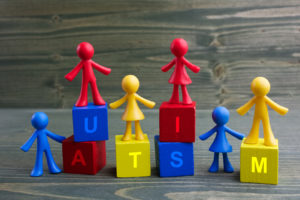
These new results, published in Nature Communications, are based on an analysis of 5 cross-sectional datasets involving nearly 650,000 people. Compared to their cisgender counterparts, transgender and gender-diverse adults were found to be 3 to 6 times more likely to be diagnosed with autism, even after adjusting for other factors that may contribute to autism diagnosis, such as age or education.
In addition to higher scores on self-reported measures of autistic traits, transgender and gender-diverse adults also scored higher on systemizing, or the drive to build and or analyze systems and rules, and on sensory sensitivity. Their scores in empathy traits, however, were lower than those observed in cisgender adults.
Transgender and gender-diverse adults were also at higher risk for multiple psychiatric neurodevelopmental conditions.
The specific role of autism in sexual orientation and vice a versa is just beginning to be explored. According to the authors, more research is needed to determine how autism may manifest in people of different sexual orientations and how physicians can use such information to support the health and well-being of each person who may be affected by these conditions.
Reference
Warrier, V. et al. (2020). Elevated rates of autism, other neurodevelopment of psychiatric diagnoses, and autistic traits and transgender and gender–diverse individuals. Nature Communications, 11, 3959.
